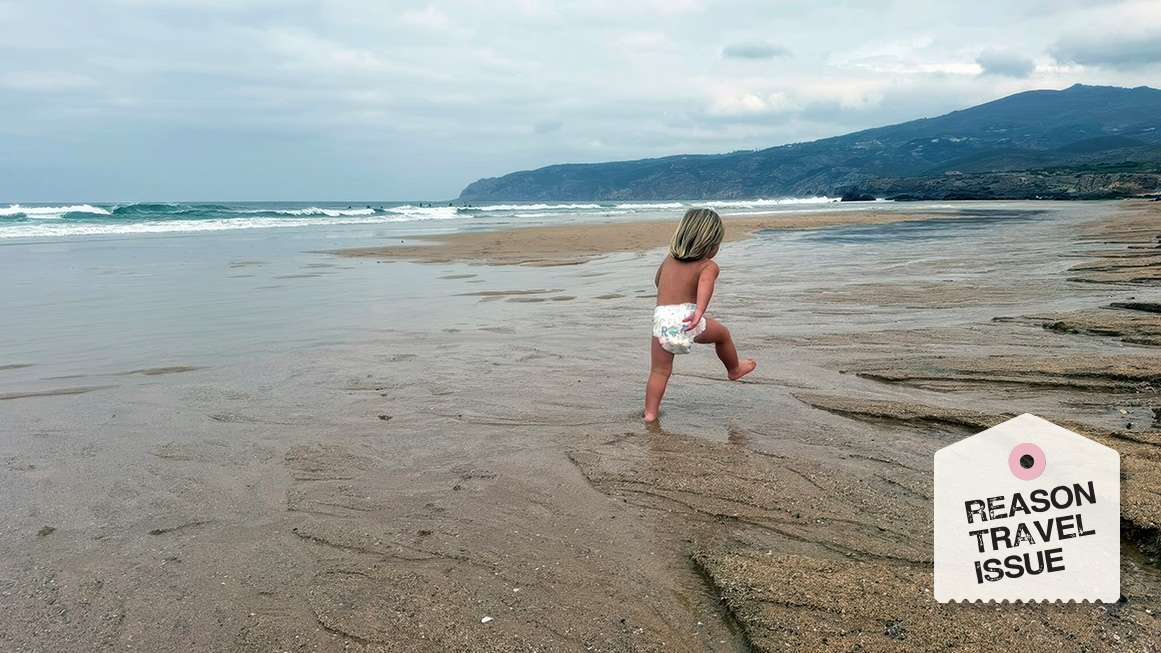Embracing a More Family-Friendly Approach to Travel and Parenting
As part of the 2025 summer travel issue, there are countless stories that highlight unique experiences around the world. One such tale involves a personal encounter in a Portuguese airport that left an indelible mark on the family’s perspective on parenting and cultural norms.
The incident began when the author’s baby was taken by an elderly woman working in a bakery at the airport. The woman, who was crafting pastéis de nata, had taken the then-9-month-old son behind the counter, seemingly eager to show him around and perhaps feed him some custard. While the situation could have been alarming, the parents found themselves in a culture where children are treated with a level of respect and care that is rare elsewhere.
Portuguese culture places a strong emphasis on the well-being of children and families. This is evident in various aspects of daily life, from airport security lines to public spaces. Pregnant women, the elderly, and those traveling with young children are often given priority access, allowing them to move through the system quickly. Locals are quick to correct anyone who might be in the wrong line, ensuring that these privileges are respected. This kind of rule-abiding behavior is unusual for Southern Europeans, but it highlights the value placed on family units in Portugal.
Unlike their Northern European neighbors, who are strict about child safety regulations, the Portuguese take a more relaxed approach. For instance, they do not enforce the use of car seats for toddlers in taxis or buses, which can be a relief for parents who prefer to use public transportation. This flexibility allows families to make choices based on their own comfort and convenience.
Playgrounds in Portugal encourage risky play, which is a stark contrast to the American approach. In Lisbon, the Jardim da Estrela offers climbing structures that are as high as 15 feet, where children as young as five compete for the top spot. This environment fosters independence and physical development, something that is often overlooked in more regulated playgrounds in the United States.
In the U.S., playgrounds are heavily regulated, with guidelines that discourage certain types of play due to safety concerns. For example, the Public Playground Safety Handbook discourages free-swinging ropes, citing potential hazards. Some cities even padlock playgrounds during cold weather, effectively limiting outdoor playtime. This approach can be seen as overly cautious, potentially depriving children of valuable opportunities for exploration and growth.
Portugal also offers a more welcoming environment for families in public spaces. Public parks often have facilities tailored for potty-training kids, and diaper changes can be done on park benches. Daycares in the area ensure that children are dressed appropriately for all weather conditions, making outdoor time a regular part of their routine. Parents are not overly protective, allowing children to explore and interact with others in a natural setting.
This cultural attitude extends to dining out, where families are commonly seen enjoying meals together, even late into the evening. While Portugal has experienced a decline in birth rates, the country is showing signs of recovery, with more families embracing the joys of parenthood.
Other cultures around the world also offer valuable insights into child-rearing practices. In Costa Rica, for example, children are allowed to roam freely, and homeschooling is common among expatriate families. In Panama, young children are often seen surfing without supervision, relying on siblings for guidance. Germany, too, has playgrounds designed for independent play, where adults are not permitted, encouraging kids to engage in activities like climbing, building, and even fire-making.
What sets Portuguese culture apart is its ability to integrate children into everyday life without making them feel like a burden. By treating children as a gift rather than a responsibility, society creates an environment where families can thrive. This approach not only makes parenting easier but also helps children learn how to behave in public settings through repeated exposure and practice.
Ultimately, the grace with which Portuguese culture treats families makes it easier to navigate the challenges of raising children. When a child has a tantrum or spills something, the community is understanding, recognizing that such moments are a normal part of life with kids. This acceptance fosters a warm, friendly, and growing society where families can feel supported and valued.







